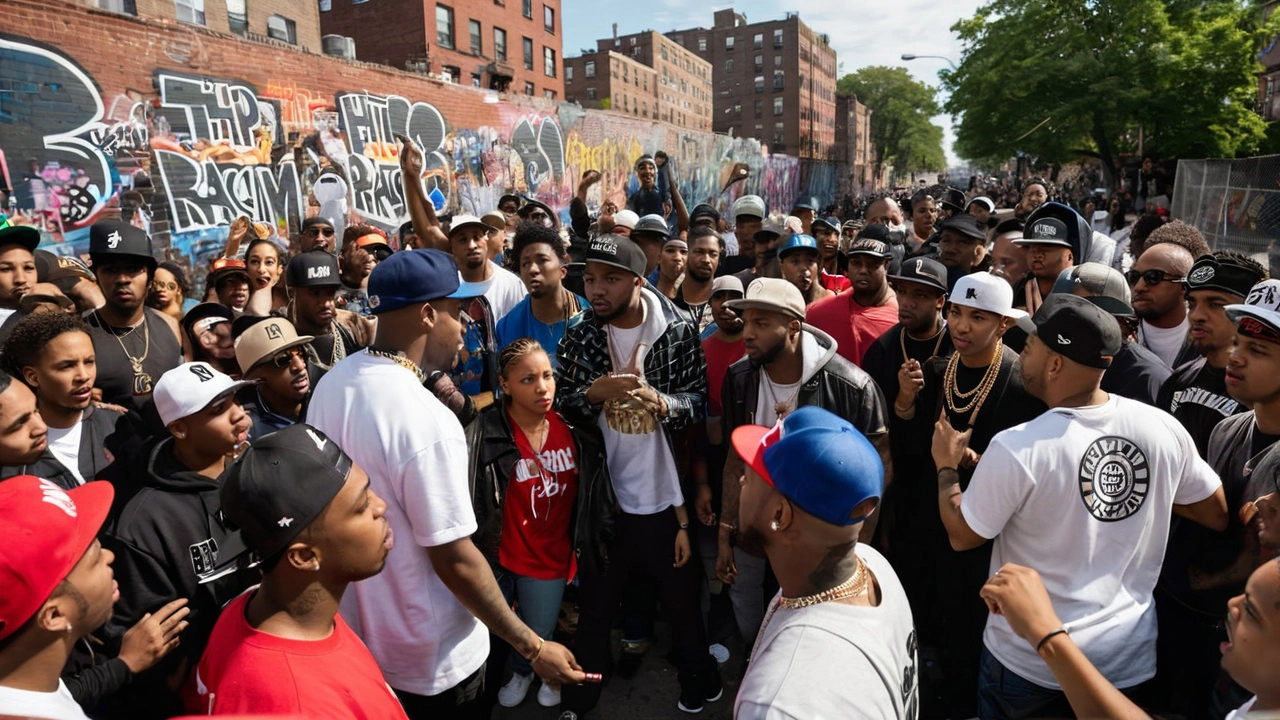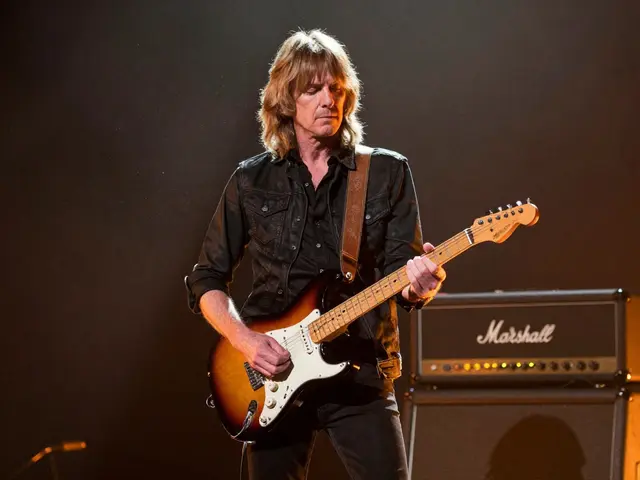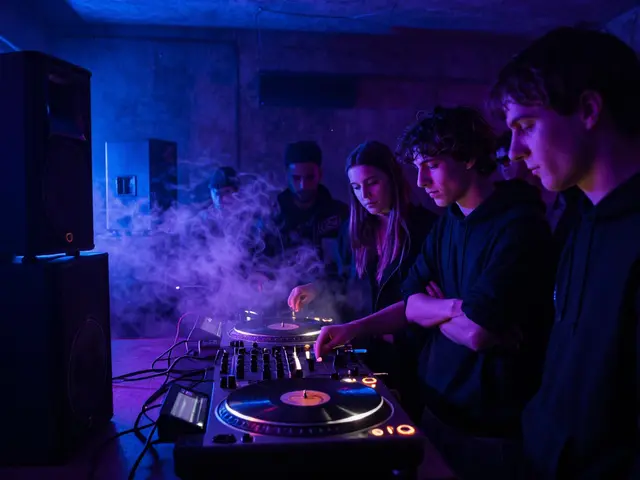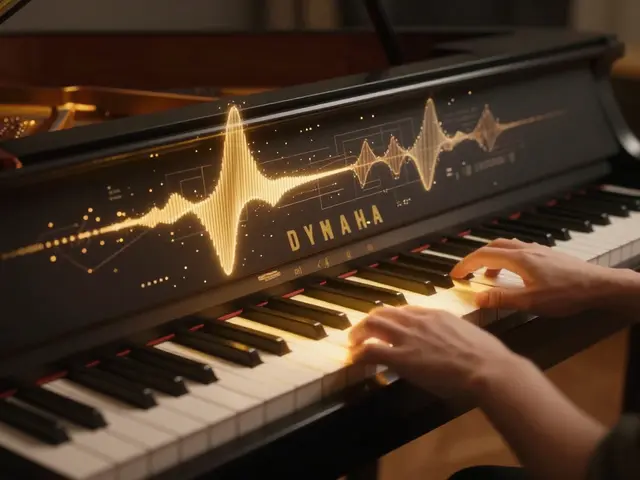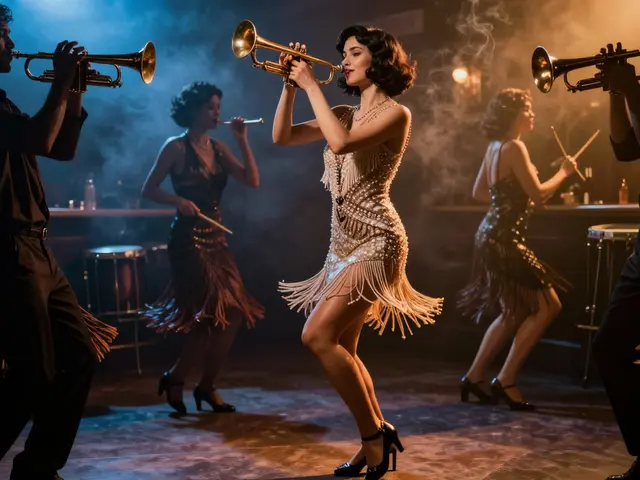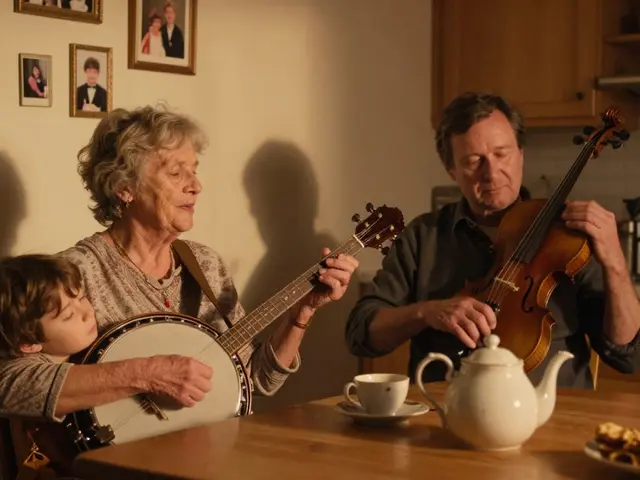Hip hop has always been more than beats and rhymes. Its roots in the Bronx during the late 1970s were deeply intertwined with the social challenges of the community. As a genre, hip hop developed alongside the political and social issues that affected marginalized communities, becoming a voice for the voiceless.
Many might think of hip hop as just entertainment, but it’s a powerful tool for social activism. Icons like Tupac Shakur, Public Enemy, and Kendrick Lamar have used their platforms to address issues like racial inequality, police brutality, and economic disparity. They didn’t just make music; they sparked conversations and inspired movements.
The impact of hip hop on social change is undeniable. Songs like 'Fight the Power' by Public Enemy have been anthems for protests and rallies. Today, artists continue to use their influence to mobilize youth and bring attention to causes that matter.
For those looking to leverage music for social causes, hip hop offers a blueprint. It shows that when art meets passion for justice, it can move mountains. By engaging communities and speaking truth to power, hip hop remains a vital force in activism.
- Origins of Hip Hop and Social Commentary
- Key Moments and Figures in Hip Hop Activism
- Impact on Specific Social Issues
- Tips for Using Music for Social Causes
Origins of Hip Hop and Social Commentary
Hip hop's birth in the Bronx during the late 1970s was no accident. This vibrant genre emerged from a convergence of hardship, creativity, and community spirit. The Bronx was a place marked by economic decline and urban decay, with the local residents, predominantly African American and Latino, grappling with everyday social struggles. This environment became the fertile ground where hip hop would flourish.
The foundations of hip hop can be traced back to block parties and neighborhood gatherings. DJs like Kool Herc would spin records, isolating the breaks to create continuous dance loops. These breaks became the backbone of the genre, but it was the emcees (MCs) who transformed it into a platform for storytelling and advocacy.
Early hip hop songs often reflected the harsh realities of life in the inner city. Tracks like Grandmaster Flash and the Furious Five's 'The Message' painted a vivid picture of urban poverty and violence. This song, with lyrics like 'Broken glass everywhere, people pissing on the stairs, you know they just don't care,' addressed the systemic issues plaguing their communities. It was a raw and unfiltered look at life that resonated with many and established hip hop's role as a form of social commentary.
"Don't push me 'cause I'm close to the edge, I'm trying not to lose my head." - Grandmaster Flash and the Furious Five, 'The Message'
Hip hop's early pioneers understood the power of their words. They saw their music as a way to raise awareness and inspire change. Songs became vehicles for discussing issues like police brutality, racial discrimination, and economic inequality. For example, Public Enemy's Chuck D famously described hip hop as 'the CNN of the ghetto,' underscoring its role in delivering news and perspectives often ignored by mainstream media.
As hip hop evolved, so did its reach and impact. The genre spread beyond the Bronx, capturing the imaginations of young people across the United States and eventually, the world. With this expansion came a broader platform for activism. Artists began to tackle not only local but also global issues, using their music to connect with and inspire action from an international audience.
By the 1980s and 1990s, hip hop had cemented its place as a formidable force in social activism. Songs and albums were increasingly used to address and critique societal issues. N.W.A's 'F*** tha Police' became an anthem against police brutality, while Tupac Shakur's discography delved into themes of racial injustice, poverty, and systemic corruption.
Emerging Themes in Hip Hop
As hip hop progressed into the mainstream, several recurring themes began to define its social commentary. Poverty, gang violence, and systemic racism were among the most prominent. These topics were not just addressed in passing; they were dissected and challenged head-on. The music offered both an outlet for frustration and a call to action, weaving personal experiences with broader social issues to resonate powerfully with listeners.With its roots firmly planted in the struggles and triumphs of marginalized communities, hip hop has always been more than just a genre of music. It's a culture, a movement, and a voice for the oppressed. Its origins in social commentary continue to influence and inspire artists and activists today, proving that hip hop is not just a reflection of society but a vital force for change.
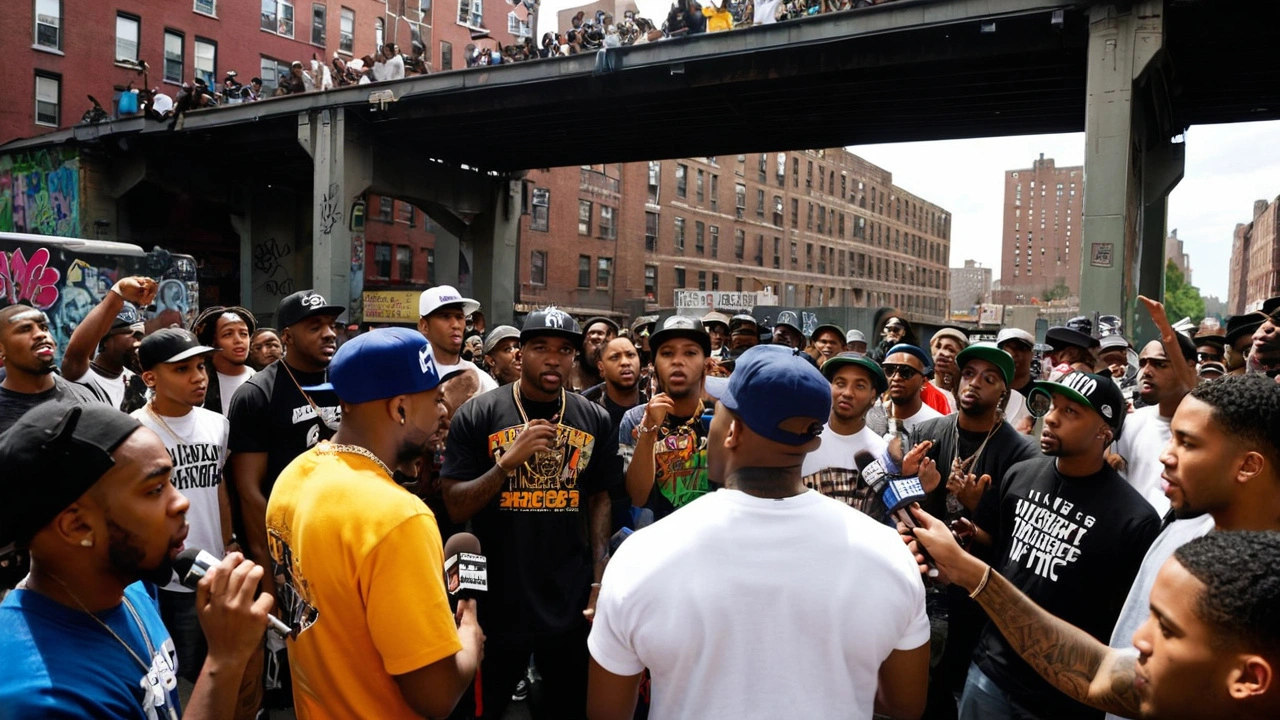
Key Moments and Figures in Hip Hop Activism
Hip hop has had numerous key moments where it has intersected with social activism, leading to powerful change. One of the earliest significant moments came with the release of Grandmaster Flash and the Furious Five's 'The Message' in 1982. It gave a raw, first-hand account of life in the ghetto, highlighting poverty, violence, and systemic neglect. This song changed the landscape of hip hop, proving that the genre could be a strong vehicle for social commentary.
Another pivotal figure in hip hop activism is Tupac Shakur. His songs like 'Brenda's Got a Baby' and 'Keep Ya Head Up' focused heavily on social issues such as teen pregnancy, gender equality, and systemic racism. Tupac’s work explored these themes in a very personal way, resonating deeply with people who experienced these struggles daily. His mother, Afeni Shakur, was also a member of the Black Panther Party, and her influence on Tupac’s activism can't be understated.
Public Enemy, led by Chuck D, took hip hop activism to a new level with their music. Their song 'Fight the Power' is perhaps their most iconic. Released in 1989, it was an anthem of resistance and an integral part of the soundtrack to social justice movements for decades. The song's call to action is clear, and its influence has been long-lasting. Public Enemy didn't stop at music; they participated in rallies, spoke out against injustices, and used their platform to advocate for change.
In recent years, Kendrick Lamar has carried the torch of hip hop activism. His album 'To Pimp a Butterfly' is a masterclass in discussing race, politics, and self-empowerment through music. Kendrick’s song, 'Alright,' became an unofficial anthem of the Black Lives Matter movement. When people chanted 'We gon’ be alright' at protests, it was a testament to the song's impact and relevance. In 2016, Kendrick performed a medley of his songs, addressing systemic racism and incarceration, live at the Grammy Awards, making a powerful visual and auditory statement.
One notable collective that continues the legacy of hip hop activism is the Stop the Violence Movement. Formed in 1988 by KRS-One in response to growing violence in African American communities, the collective released 'Self Destruction,' a collaborative track featuring several hip hop legends. The funds from the song and subsequent initiatives were used to promote peace and combat violence within communities.
Hip hop activism is not just confined to the United States. In the globally connected world of today, artists from all over the globe are using hip hop to fight against social and political issues in their regions. For instance, the Palestinian rapper MC Gaza uses his music to speak out against the Israeli occupation and the significance of political freedom.
The key figures and moments in hip hop activism demonstrate that music is a powerful force for change. They remind us that art can be a weapon against injustice, a message of resilience, and a voice for those who often go unheard.
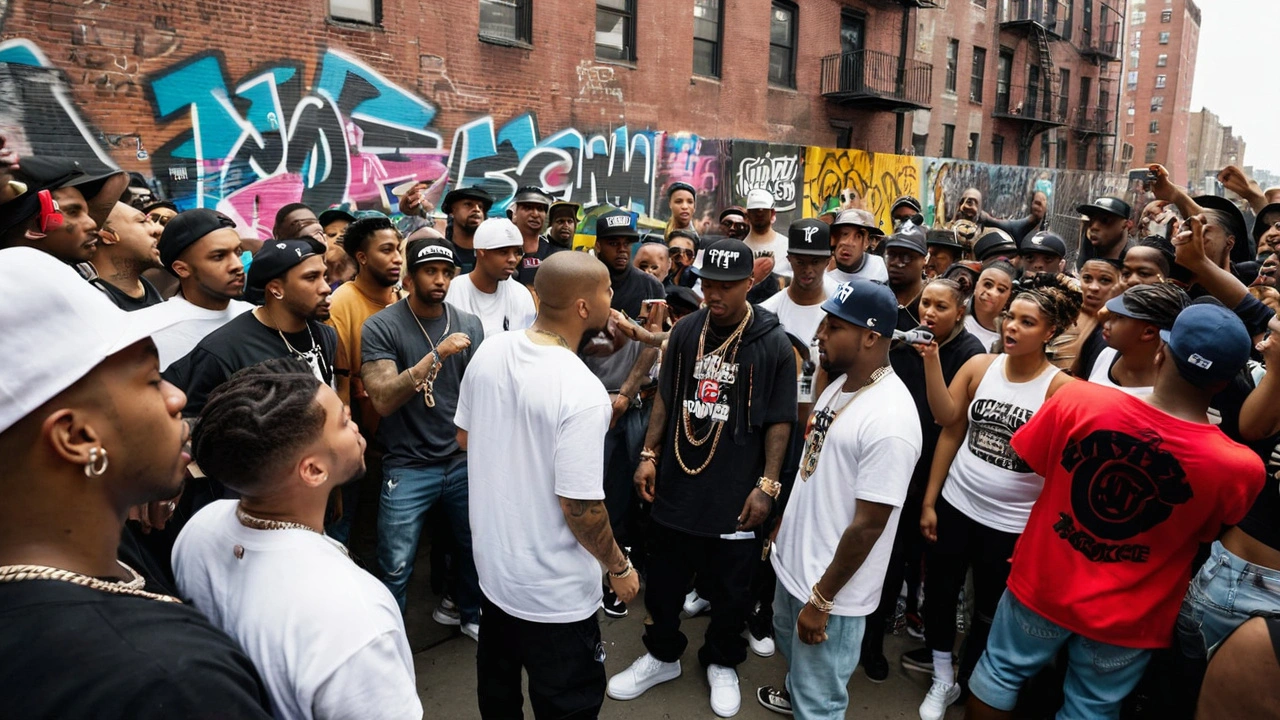
Impact on Specific Social Issues
Hip hop has had a significant impact on various social issues over the decades. From racial inequality and economic hardship to political consciousness and mental health, hip hop has acted as a lens through which many of these issues are viewed and addressed. One of the most prominent areas where hip hop has made its mark is in the realm of racial inequality. Tracks like N.W.A.'s 'F**k tha Police' highlight the systemic injustices faced by Black communities, particularly concerning police brutality. These songs aren’t just music; they are cries for help, giving communities a platform to express their frustration and demand change.
Economic disparity is another crucial issue that hip hop tackles head-on. Many artists, such as Nas, use their lyrics to talk about the struggles of growing up in poverty. In 'New York State of Mind', Nas paints a vivid picture of life in the inner city. The song provides not just a narrative but also a powerful commentary on the lack of access to opportunities that many face in economically disadvantaged neighborhoods. These stories resonate with listeners who have lived similar experiences, bridging gaps between different demographics and fostering empathy.
The political landscape has also been heavily influenced by hip hop. During election cycles, artists like Killer Mike and YG have actively campaigned and used their music to boost voter turnout and educate the public about their rights. YG's 'FDT' (F**k Donald Trump) is an example of a track that took a strong political stance, rallying young voters and demonstrating the genre’s ability to mobilize and influence political discourse. Hip hop’s reach extends beyond mere entertainment; it has become an integral part of the political conversation.
On the topic of mental health, artists like Logic have used their platforms to raise awareness and combat the stigma associated with mental illness. Logic's '1-800-273-8255' addresses issues of depression and suicide head-on, providing not just a song, but a lifeline for many who are struggling. According to a report by the National Suicide Prevention Lifeline, calls to their service spiked by 27% following the release of the song, signifying the song’s impact on public awareness and mental health advocacy.
These examples show just how deeply hip hop is embedded in various social issues. The genre’s artists act as modern-day storytellers, reflecting the real struggles and triumphs of their communities. They don’t just create music; they create movements. When we listen to hip hop, we’re not just hearing beats and rhymes—we’re engaging with a powerful medium that has the potential to change society for the better. As Chuck D of Public Enemy once said, "Rap is black America's CNN." This quote underscores the idea that hip hop is more than music—it’s a vital form of communication and a catalyst for real, substantial change.
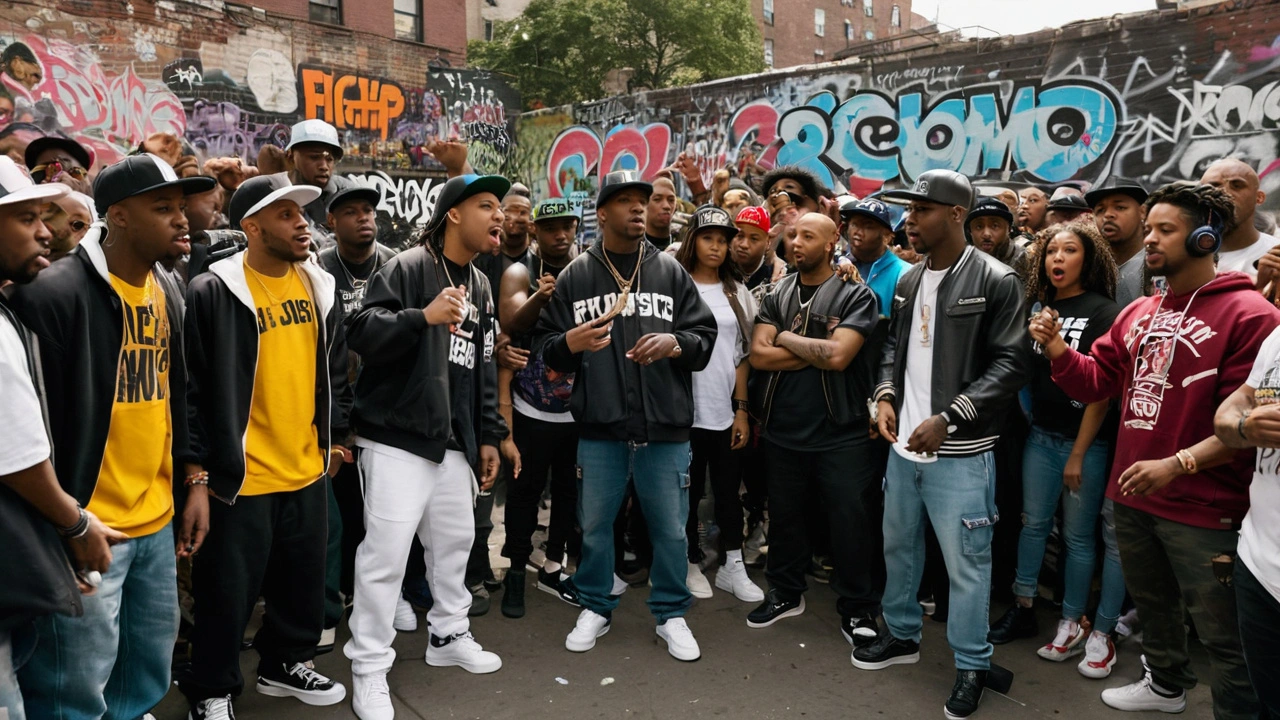
Tips for Using Music for Social Causes
Music has the unique ability to cross boundaries, touch hearts, and ignite movements. When used thoughtfully, it can be a potent weapon for social change. Here are some effective tips for leveraging the power of music in advocating for important causes.
1. Know Your Cause
Before creating or promoting music for a social cause, it is important to thoroughly understand the issue you're addressing. This entails researching the history, key statistics, and the main challenges involved. When Arctic Monkeys created 'Four Out Of Five,' they understood the nuances of political dissatisfaction. Authenticity is key; deep knowledge about the cause ensures the music resonates genuinely with audiences.
2. Collaborate with Influential Voices
Collaborating with established artists who are vocal about social issues can bolster your cause. Kendrick Lamar’s 'Alright' became an anthem for the Black Lives Matter movement partly due to his established influence. Partnerships amplify the message and reach a wider audience, lending credibility and enhancing impact.
3. Engage the Community
Involving the community can add authenticity and a grassroots feel to your musical project. When Beyoncé released 'Formation,' she engaged directly with the experiences and struggles of the African American community, making the song all the more powerful. Hold local events, workshops, and performances to bring people together and create a sense of shared mission and solidarity.
4. Leverage Social Media
Utilizing social media platforms is essential. Create hashtags, share behind-the-scenes content, and encourage fans to share their stories related to the cause. Billie Eilish used Instagram to raise awareness about climate change, combining her music's reach with actionable steps for her followers, effectively mobilizing a younger demographic.
5. Use Visuals to Drive the Message
Complement your music with striking visuals. Videos, posters, and social media graphics can drive the message home. Childish Gambino’s 'This Is America' is a prime example, where the visuals combined with the music to create a powerful commentary on gun violence and racism. A compelling visual narrative ensures the message stays with the audience long after the song ends.
6. Provide Clear Actions
Music can inspire, but giving clear actions can catalyze real-world change. Encourage your audience to donate, volunteer, sign petitions, or attend rallies. Logic’s song '1-800-273-8255' not only raised awareness about suicide prevention but also provided a direct line for listeners in need of help. Offering tangible steps empowers listeners to turn emotion into action.
7. Stay Consistent
Consistency maintains momentum for your cause. Keep producing content, organizing events, and engaging with your audience regularly. Look at how U2 and Bono have consistently advocated for humanitarian causes across their decades-long career. Regular engagement keeps the issue at the forefront and prevents it from fading into obscurity.
"Music can change the world because it can change people." – Bono
By following these tips, musicians can effectively use their art to make a difference. The union between music and social causes is truly impactful, demonstrating that songs can be more than just tunes; they can be calls to action that reverberate globally.

